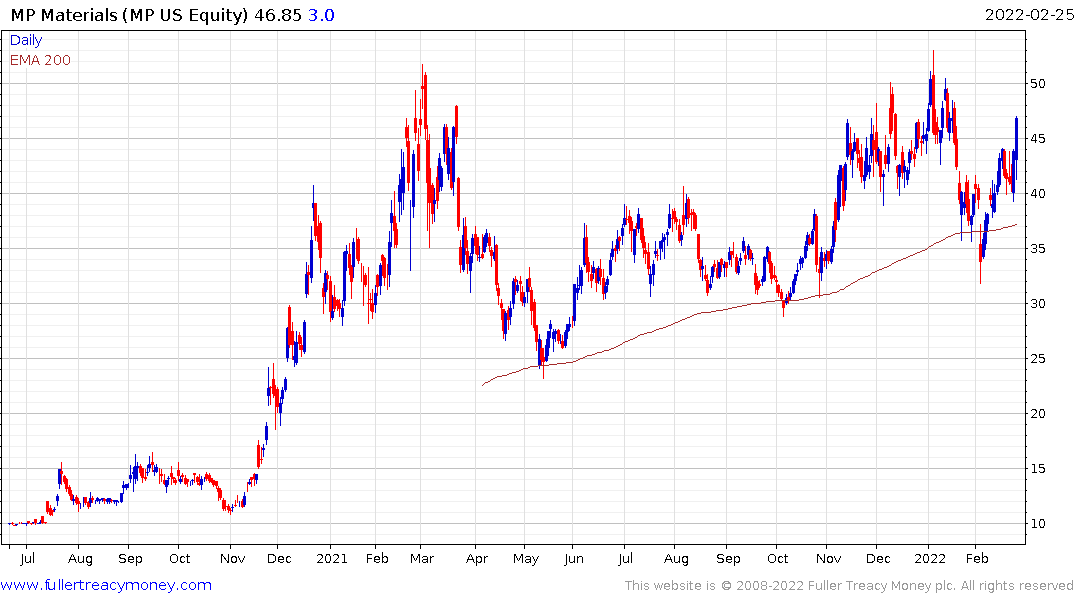Where do Ukrainian economics matter, or is it 'matter' that matters?
Thanks to Iain Little for this edition of his Global Thematic Investors’ Diary. Here is a section:
The proximate global economic effect will be on commodity supply (the complacent West taking much of the blame). Much has been made of Ukraine and Russia as the largest (30%) breadbasket in the world and the Russian Nord Stream 2 gas pipeline dilemma facing the EU/ Germany. But few would have predicted this week’s announcement by a Democrat President to expand domestic mining in strategic metals (lithium, graphite, rare earths, cobalt, rhodium, nickel, zinc etc). This points to a supply chain challenge where ESG objections now take 2nd place. The USA is dependent on Russia for much of its strategic supply chain: C4F6 gas and neon for chips, palladium for sensors, plating material and computer memory (MRAM), titanium for engines, fans, fighter jet disks, missiles, satellites. Russia needs high end chips, where the USA has edge, but where Russia is said to be able to obstruct the USA’s chip supply chain. These squeezes, offsets and stand-offs occur at a time when inflation is already above 5% for major economies.
Here is a link to the full note.
It currently takes 7-10 years to get a mine permitted in the USA. In Canada and Australia, the average is 2. For the last forty years, outsourcing supply of raw materials, other than oil and gas, has been the de facto position of successive US administrations.
No one wants to live next to a metals’ refinery belching out noxious fumes 24/7. The result is China dominates the processing of everything from copper, to rare earth metals because the environment ranks much lower on their list of priorities.
The environmental lobby has resorted to legal challenges to almost every new mine in the USA for decades. That greatly increases the cost of the permitting process to make it unfeasible. Changing the legal obstacles to new mines is going to take a massive cultural shift. This article from S&P Global Market Intelligence voices the concerns of the mining industry that this talk of positive reform is a veiled attempt at slowing down production permitting even further.
"We would hope that the administration's examination of minerals supply chain issues would focus on how to restore U.S. mining's competitiveness on the global stage, decrease our import reliance, and ensure that existing federal and state regulations are not duplicated," Conor Bernstein, vice president of communications at the NMA, told S&P Global Market Intelligence in an emailed statement. "Instead, however, Interior's language suggests it is using the supply chain review as a thinly veiled attempt to advance misguided Mining Law reforms that have failed in Congress time and time again."
There is no question the USA needs domestic sources of cobalt, rare earths, lithium etc. Refining these products is extremely dirty so the big question is where will it take place? Mining in a sustainable fashion is a major stated objective of the new Biden policy but what exactly does that mean? This talk of reform is couched in the language of people who have never had dirt under their fingernails. It might be cynical but I am in the “show me” camp when it comes to enthusiasm about positive mining reform in the USA.

MP Materials, is receiving government funding to domestically produce rare earth metals in the USA. The share is rallying back to test the upper side of a yearlong range.
Back to top


